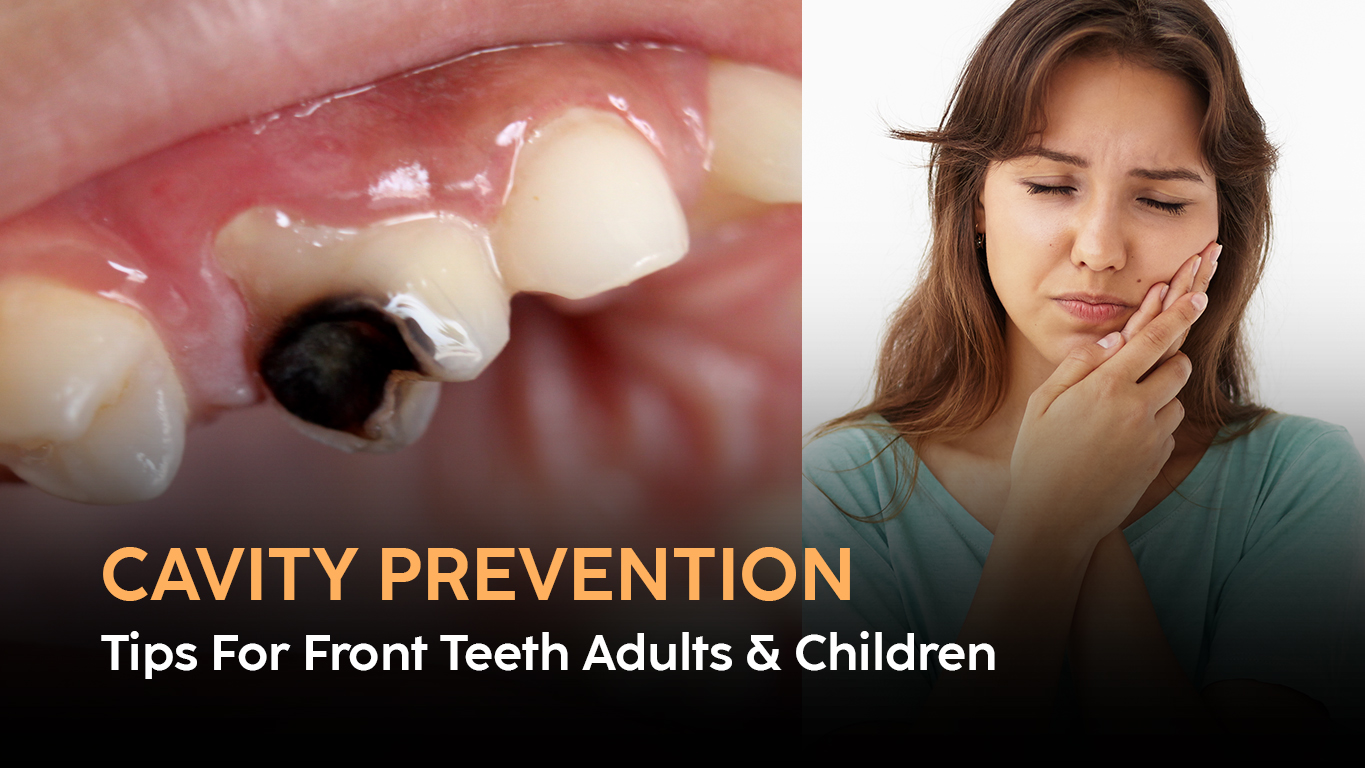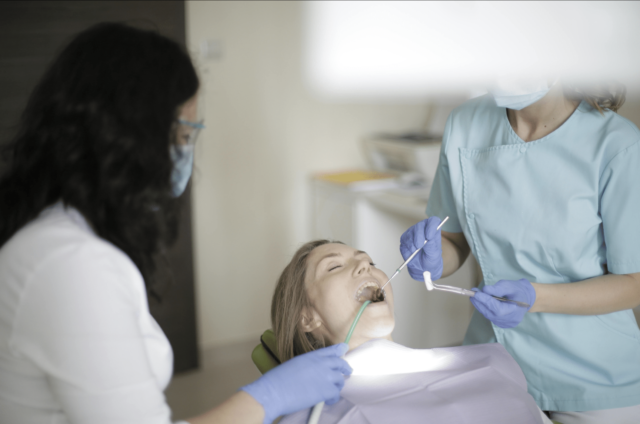Prevent cavities and strengthen your teeth with expert health & medical tips for optimal oral health. Cavities, which are also referred to as dental caries, are regarded as a common dental problem which is related to the process of dental tooth decay. Even though dental care has improved a lot, caries are still considered as one of the most common health diseases or even health disorders in the world. There is a qualitative exposition of how to prevent a cavity while looking for reasons and approaches to get rid of it. All these tips will help you make your mouth healthy and ensure that your teeth do not get cavities and remain strong and in good condition.
What Are The Causes That Lead To Cavities
Understanding dental cavities first requires the understanding of tooth decay. Cavities can be defined as areas of a tooth that have been damaged permanently due to decay of the tooth enamel and have small holes or decayed areas. Such conditions are created when food is consumed leading to production of bacteria in the mouth which in turn acids and eventually leads to the destruction of the protective layer of the teeth. This condition can lead to acute pains, infections or even loss of teeth if the necessary attention is not brought upon them.
What Are the Risk Factors That Lead to Getting Cavities?
- Dental caries is mainly brought about by poor, ineffective brushing and flossing which allows plaque to build up.
- Food consumption which is classified under high sugar diet.
- Consumption of strong acids or acidic food on a frequent basis.
- Inadequacy of fluoride
- Lack of Methionine
How Do Cavities Get Treated – Effective Treatment Tips
1. Practice Proper Oral Hygiene: Every individual should try their level best to brush their teeth at least two times a day with the right kind of Fluoride containing toothpaste.
Moreover, here Joel Teitelbaum believes that a soft-bristled toothbrush should be used to clean the teeth areas. A medium sized to soft brush would do the proper cleansing of the teeth areas.
Floss your teeth at least once daily at night to clean any debris that has become trapped where even a toothbrush cannot reach.
2. Incorporate Fluoride Products: Fluoride is a benevolent compound that is able to remineralize early lesions and much favors enamel in that sense. Take:
- Fluoride toothpaste.
- Mouthwash containing fluoride.
- Fluoride gel or varnish on a prescription basis (used for very high-risk patients).
3. Observe a Healthy Eating Habit
- Reduce the number of sweetened snacks and beverages consumed.
- Include calcium foods, dairy products in the diet for strong bones and teeth.
- Take in range of fruit and vegetables which are fibrous to induce salivation.
4. Be Adequately Hydrated: Replenish water in the body in order to sustain the flow of saliva and ensure that its functions in neutralizing acids, facilitating the removal of food remnants, and providing additional aid to the oral cavity.
5. Attend Your Dentist’s Clinic Regularly: Make sure to book the appointment only twice a year for thorough cleaning of your teeth and identification of ailments in their early stages.
How Can I Make My Teeth Strong and Cavity-Free?
1. Sealants for Protection: Sealants can be described as the thin plastic like materials made to bridge the fissure spaces of the back teeth and masticatory surfaces for molars. Hence, reducing the chances of the teeth to ferment and grow cavities.
2. Chew Sugar-Free Gum: Chewing sugar-free gum helps to boost saliva which is great in removing food waste and neutralizing acids.
3. Avoid Frequent Snacking: If one continues to eat small portions of food, they are asking to turn the inside of their mouth into one big acidic environment. This would mean that people should only eat during designated mealtimes and not allow themselves to have snacks in between mealtimes.
4. Incorporate a Remineralizing Toothpaste: Remineralizing toothpaste helps restore minerals back to the enamel facilitating the repair of micro-abrasions strengthening the teeth.
What Can I Put on My Teeth to Prevent Cavities?
1. Fluoride Treatments: Fluoride varnishes, gels, and rinses prove useful for the prevention of cavity lesions. Dentists can directly administer fluoride for optimal use.
2. Antibacterial Mouthwash: Use of antimicrobials transfers a mixed value in the chamber – cavity meaning lowers bacterial load hence reducing chances of cavity formation.
3. Xylitol Products: Xylitol, which is an alternative to sugar, suppresses bacteria that arise from decay. Try out xylitol gum, mints, or toothpaste.
4. Coconut Oil Pulling: Studies suggest oil pulling causes reduction of bacteria in the mouth which may play a role in promoting oral health.
Foods to Strengthen Teeth:
| Food | Nutritional Benefit | Why It Helps |
|---|---|---|
| Dairy (milk, cheese) | Rich in calcium and phosphates | Strengthens enamel and bones |
| Leafy greens | High in vitamins and minerals | Reduces inflammation in gums |
| Apples and carrots | Fibrous texture | Increases saliva, cleans teeth |
| Nuts (almonds, walnuts) | Contain calcium and protein | Supports enamel repair |
| Water | Fluoride (in some regions) | Washes away food debris |
What is the best approach for minimizing my cavities in teeth?
1. Seek Treatment for Early Signs of Decay: If your tooth is feeling sensitive or if you see white spots developing on your teeth, take a trip to your dentist. If these are the only lesions, understand that they signify the start of decay, which may be se or in its earliest stages.
2. Get a Customized Treatment Plan: Your dentist can prescribe special treatment, which may include the following:
Fluoride prescription products.
Repairs for the damaged areas in the form of fillings.
3. Manage the Condition of Xerostomia: Whenever someone suffers from dry mouth constantly, he/she should see a dentist/doctor. Saliva substitutes and prescription mouthwashes are available.
4. Decrease Sugar, Sport drinks and Soda: Cut down on sugary drinks and soda as they are the main source of tooth enamel depletion in juices, sports drinks, and sodas.
5. Stick to a Routine that Involves Dental Instruments: Electric toothbrushes and water flosser/irrigators improve streaking out your teeth especially with patients who are wearing braces/those who have limited dexterity.

Comparison of Cavity Prevention Methods:
| Method | Effectiveness | Cost | Recommendation |
|---|---|---|---|
| Fluoride toothpaste | High | Low | Use daily |
| Professional cleanings | Very high | Moderate | Twice yearly |
| Dental sealants | High | Moderate to high | For molars |
| Sugar-free gum | Moderate | Low | After meals |
| Antibacterial mouthwash | Moderate | Low | For high-risk individuals |
FAQs
1. In what ways can I naturally support my body in avoiding cavities?
Maintain appropriate oral care, eat a healthy diet, and drink lots of water. It also helps to chew on sugarless chewing gum and consume fiber-rich fruits like apples.
2. Which fluoride product is most appropriate for cavity-prone people?
Fluoride toothpaste and mouthwash are safe for regular use. Other patients who are especially at risk may be given special types of fluoride treatment by dentists.
3. Do budding cavities have the potential to be treated?
Indeed, the fluoride treatments while early cavities occur, remineralizing toothpaste, in addition to good oral hygiene, can sometimes help in reversing them.
4. How frequently should I go for a dental checkup?
You should go for dental appointments at least two times in a year for cleaning and other checkups. Most patients who are high risk may require more.
5. Are dental sealants beneficial?
The placement of Dental Sealants is useful in children and teenagers as it helps in preventing decay around the molars.
6. What dietary restrictions are recommended to avoid the development of cavities?
Steer clear of sweet snacks, sticky candies, soda and citrus juice as all of them are highly acidic.
Conclusion
There is need to maintain good oral hygiene practices and a well-balanced diet alongside dental services to reduce the chances of developing cavities. By adopting these tips and knowing the root of cavities you will definitely appreciate a better set of teeth and a smile for much longer while preserving that healthy, bright feeling. Don’t wait any longer and take measures to protect your health—it is worth it investment.







